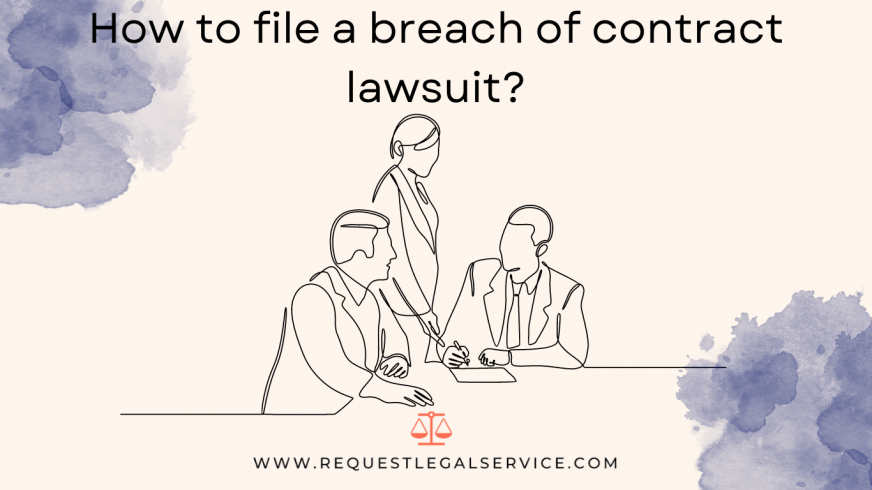
Any agreement that creates, express, or implied, an obligation on the contracting parties is a contract.
There are various kinds of deals that, as an individual or a company you enter into during your lifetime.
At times these contracts are subject to a legal dispute, and its interpretation is the primary legal contention to know whether the defendant is at fault or the plaintiff.
As there is no Federal Law regulating contract law in the United States, the contracting parties are free to choose the court of choice at the time of entering the contract.
As a widespread practice, companies tend to select the First State, Delaware, as the Court of Choice due to the existing corporate laws.
The courts in Delaware for contractual disputes consider factors such as the existence of a contract, violation of contractual agreements, and subsequent damages as the background for discussing breach of contracts.
Existence of the contract
Written agreement is the first legal binding contract while deciding the agreement between the plaintiff and defendant.
The Chancery and the state government by various judgments and statutes – Code 1852, § 1167; 13 Del. Laws, c. 451; Code 1915, § 2626; 38 Del. Laws, c. 157; Code 1935, § 3106; 48 Del. Laws, c. 224, § 1; 6 Del. C. 1953, § 2714; 67 Del. Laws, c. 189, §§ 1-3; 70 Del. Laws, c. 186, § 1. – has made it amply clear that any agreement to be legally enforceable as a valid contract has to be a written agreement between parties.
Valid contract
The agreement mentioned above has to state the offer made, acceptance clearly, and the consideration discussed in the agreement. Whether a contract is valid or not can be understood by the following:
- It should for a legal act
- The parties entering the contract are of legal age and sound mind as per 6 Del. C. 1953, § 2705; 57 Del. Laws, c. 74; 58 Del. Laws, c. 511, § 8; 70 Del. Laws, c. 186, § 1.;
“Any person who has attained 18 years of age shall have full capacity to contract; provided such person has not been declared legally incompetent to contract for reasons other than age.
Any person who has attained the age of 18 years shall become fully responsible for that person’s contracts.”
- The offer (with terms and condition, if any)has to communicate clearly
- The acceptance has to be absolute
- The acceptance given is free from deceit, coercion, or fraud
- There has to a consideration of financial nature to for fulfilling the contract
If all the conditions above met, then it is a valid contract.
The contract ceases to exist if any of the parties breaches the terms and conditions of the agreement due to non-performance.
Damages Suffered
As a result of the non-performance of a contract, the other party needs to suffer damages.
The damages can be of monetary nature or non-monetary nature.
Unless there are no damages suffered, it cannot seen as a breached contract. The breach of contract classified under two kinds:
- Material breach – any act that defeats the purpose of the contract is defined as a material breach. For example, the caterer fails to deliver the wedding cake on the wedding day. This non-performance defeats the whole purpose of the contract.
- Immaterial breach – any act that slightly deviates from the conditions of the contract can known as an immaterial breach. For example, the caterer delivers the cake at 2 PM on the wedding day against the promised time of 1:30 PM. Though this is a breach of contract, it hasn’t resulted in a complete violation.
Remedy
Based on the non-performance of the parties, the remedy is decided by the courts.
It can be either in the form of financial payment or asking to fulfill the original terms of the contract or initiate criminal proceedings depending upon the damages suffered and the reason for the non-performance.
In the example above, the caterer can be asked to pay financial damages for non-delivery of the cake if it was due to avoidable circumstances.
Exception
At times the parties can’t fulfill the contract due to unforeseeable circumstances such as death, accident, war, or any natural calamity.
In these situations, the court may not levy any penalty, and these may declared as vis major, i.e., acts of God.
For more detailed information or to file a case regarding contract law under Delaware courts, consult an attorney.



